Page Contents
Parsnips are healthy root vegetables. Can rabbits eat parsnips? Yes, your pet rabbit can eat parsnips. However, you will have to take care of a lot of things to avoid any health complications. Rabbits have a sensitive digestive system. Therefore, you will have to take extra care whilst adding any fresh vegetables to your rabbit’s diet.
When it comes to root vegetables, you should give only in moderation. If you offer in small quantities, your pet will not experience any adverse effects. Instead, the tiny creature can get many health benefits. Parsnips are low in calories. But this root vegetable is rich in sugar and vitamin C. Both these can be detrimental to your pet’s health.
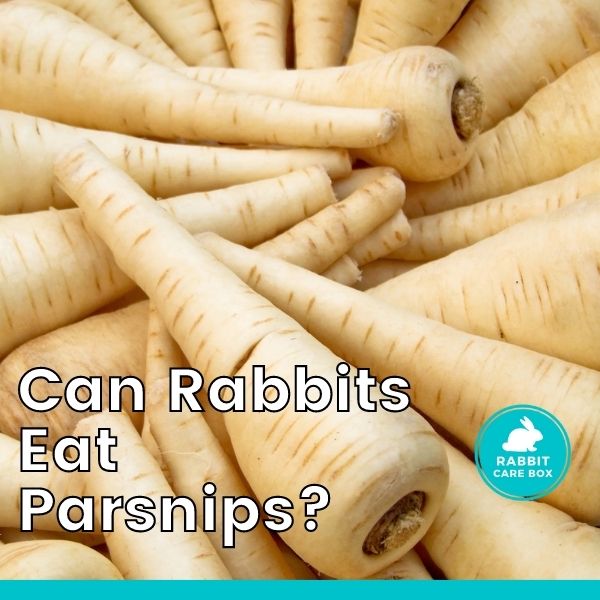
Can rabbits eat parsnips? Parsnips are healthy when fed in moderation to your pet rabbit. Also, parsnips are nourishing and tasty. Therefore, your pet rabbit will love the taste and might end up eating more. But, you will have to ensure that your pet does not have access to more parsnips.
Apart from that, you will have to wash, peel, and chop parsnips before offering them to your bunny.
In the following, we will cover more details about parsnips and what makes them a healthy choice for rabbits. Additionally, we will discuss the negative aspects.
Do Rabbits Like Parsnips?
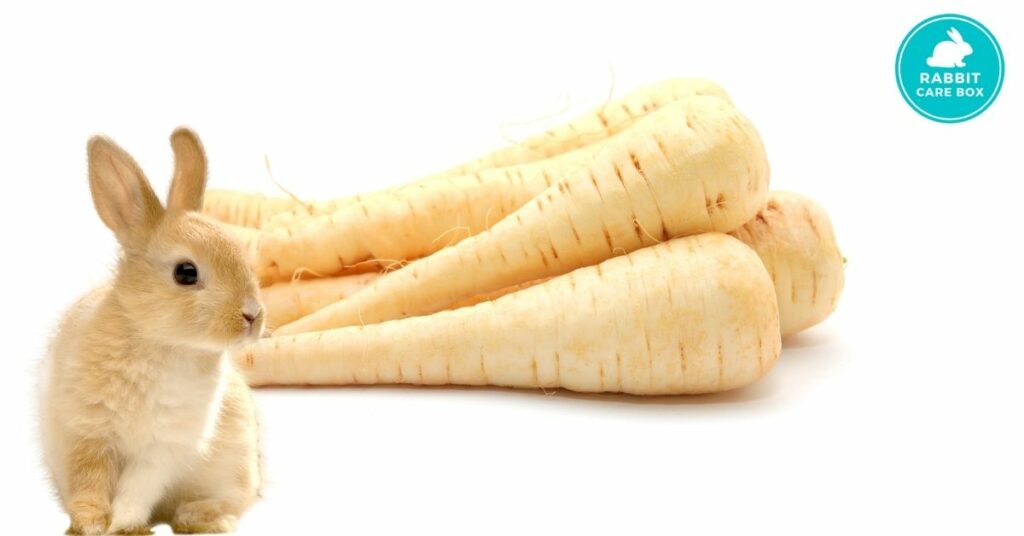
Yes, rabbits like the taste of parsnips. You might be aware that your pet rabbit loves anything that is sweat. Also, parsnips have a lot of sugar. Therefore, your pet will love to have them whenever offered.
In addition to the taste, rabbits like the aroma of parsnips. Even If rabbits love the taste and smell of parsnips, you will have to take care of the quantity. You should not exceed the recommended dose.
6 Reasons Parsnips Are Good For Rabbits
Can rabbits eat parsnip? Yes, rabbits can eat parsnips and get many health benefits. Here are six reasons to give your rabbits parsnips as an occasional treat.
- 1. LOW-CALORIE CONTENT: Parsnip is low in calories. By consuming 100 grams of parsnips, you can get fifty-five calories. That means your pet will not eat more calories by having parsnips.
- 2. BOOSTS HEART HEALTH: Parsnips are diuretic, and that makes them a good choice for the heart of your rabbit. Parsnips will prevent the growth of blood vessels around your pet’s heart.
- 3. PARSNIP IS DIURETIC: As this root vegetable is diuretic, it can help to minimize the symptoms of liver, kidneys, heart, or lung problems. Besides, it can be helpful to treat bladder stones and UTIs.
- 4. PARSNIP IS TOUGH: Your pet needs something healthy for eating and chewing. Parsnips will meet these needs and keep your bunny busy and entertained.
- 5. CONTRIBUTES TO OVERALL HEALTH: In addition to the above benefits, parsnips can keep your rabbit healthy. They have potassium and magnesium in high quantities. These enzymes will help your bunny to live an active and healthy life.
- 6. SUPPRESSES CRAVINGS: Parsnips are rich in carbs, and that will make your rabbit feel full. Also, they will keep your pet energetic.
4 Reasons Why Parsnips Should Be Given In Moderation
Parsnips are healthy for rabbits since they are fresh foods and not toxic. However, you will have to avoid parsnip greens (leaves). Even if this raw parsnip is non-toxic, it can cause health issues when you feed rabbits parsnips too much.
Your pet rabbit might experience the following four conditions when fed in more quantity… Remember they have sensitive digestive systems.
- 1. OBESITY: The high sugar quantity can contribute to the obesity of your pet.
- 2. KIDNEY ISSUE: As revealed by the California University research, rabbits produce vitamin C. If you feed them vitamin C more, they might suffer from kidney problems.
- 3. BONE AND LIVER DAMAGE: Parsnips are rich in phosphorous. However, more phosphorous can impact bones and liver health adversely.
- 4. DIGESTIVE ISSUES: Parsnips take time to digest. Therefore, if your pet eats them more, they can lead to blockages.
These are some side effects that your rabbit might experience whilst eating parsnips. However, you can minimize the risk significantly by taking care of the quantity when offering parsnips.
Nutritional Information About Parsnips
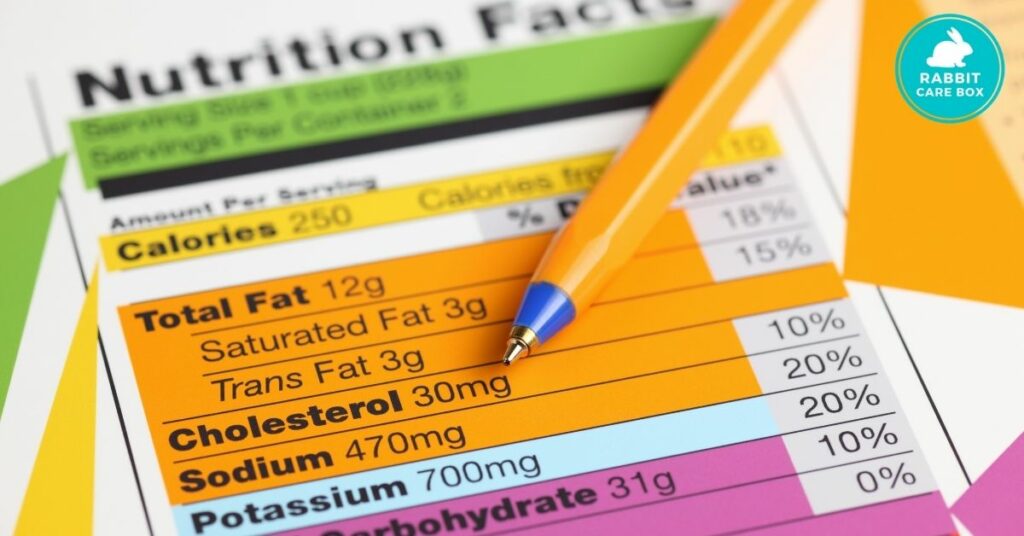
Can rabbits eat parsnips? Now, you know the answer. Your pet can eat and enjoy parsnips. Next, we will cover nutritional aspects. We will discuss what makes parsnips a healthy food for rabbit owners to feed their buns.
* WATER & DIETARY FIBER: Eighty percent of the parsnips are water. Therefore, your pet can stay hydrated after having this root vegetable. Bunnies also need dietary fiber. Both water and dietary fiber will prevent constipation.
* CARBOHYDRATES: Parsnips have carbohydrates in rich quantities. That does not make this root vegetable the best choice for your pet.
* B VITAMINS: Parsnips are rich in B9, B6, B4, B2, and B1. All these can contribute to the brain, heart, and nervous system of rabbits.
* VITAMIN C: Even if parsnips do not contain a large amount of Vitamin C, they can be harmful to bunnies. These creatures generate the required amount of vitamin C. Any extra addition might not be helpful.
* VITAMIN E & K: When vitamin E supports reproduction, vitamin K makes the blood healthy.
* ZINC & POTASSIUM: Zinc will strengthen immunity, and potassium will help with proper growth.
* MANGANESE & MAGNESIUM: Manganese can contribute to bone development, and magnesium can support overall growth and boost cardiovascular health.
In addition to the nutritional value listed above, parsnips contain antioxidants and they can help minimize the risk of cancers. Furthermore, they are rich in some anti-inflammatory and antifungal properties.
All these can help your bunny to get natural protection from many diseases and another excellent reason that makes parsnips good.
How To Feed Parsnips To My Rabbits?
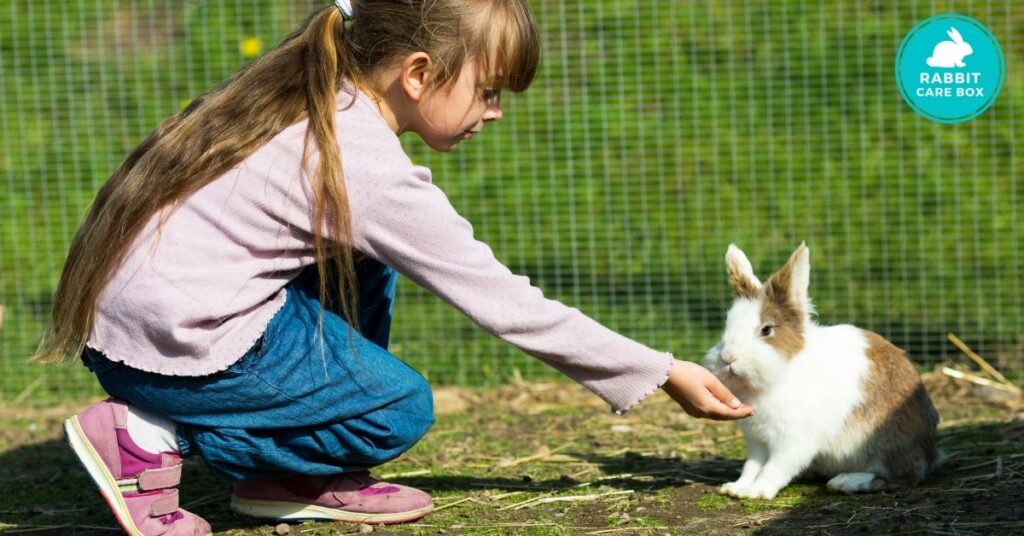
Can rabbits eat parsnips as a whole? No, you will have to follow some precautions while feeding parsnips to bunnies. You will have to avoid parsnip leaves and cooked parsnips. Also, you will have to remove the peel and wash the parsnip properly. After washing, chop it up and offer parsnips sparingly in small amounts.
You will have to wait for twenty-four hours to observe the reaction while feeding for the first time. If your bunny is fine, you can offer parsnips once a week. However, when feeding you will have to consider high-quality and fresh parsnips.
How Much Parsnip Can a Rabbit Eat?
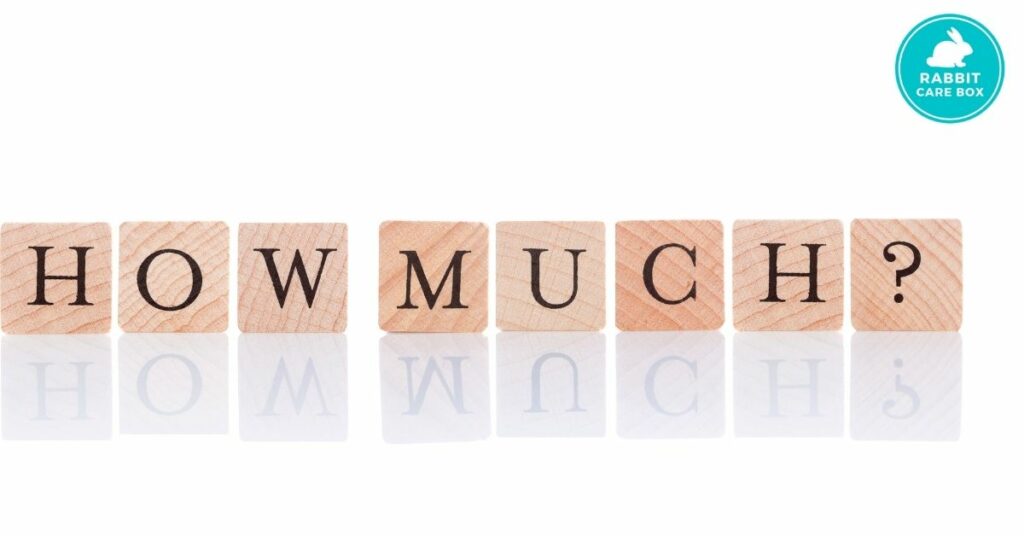
Parsnips are healthy for rabbits when offered in moderation. They should not be a part of the everyday diet. You can use them alternatively with other vegetable plants. It is worth mentioning that your pet should have a half tablespoon of vegetables every day per pound of its body weight.
However, parsnips should not be the only source of leafy green vegetables. In addition to parsnips, you will have to consider some other healthier options or leafy greens.
Can Rabbits Eat The Parsnip Leaves?
No, you cannot offer parsnips leaves to your rabbits. Humans discard parsnip leaves since they can cause skin reactions. The same applies to rabbits. We are mammals, and we might experience the same problems. Why do you want to take a chance? Instead, you can focus on healthier alternatives.
Can Rabbits Eat Parsnip Peelings ?
Yes, you can offer parsnip peelings to Rabbits. Peelings are high in phosphorous and sugar. As a result, you will have to take care of the quantity when feeding peelings. These creatures have strong jaws and ever growing teeth which are large as well. Hence, the peel can be problematic for them. Therefore, you can give a slice.
Can Rabbits Eat Parsnip Tops?
Many pet owners think that tops of parsnips are safe for rabbits. However, tops might not be a good choice for your bunny. We believe that leaves are not a healthier option since they cause skin reactions in humans. Similarly, even if no evidence suggests that parsnip tops are harmful to bunnies, you should avoid this part. When a lot of speculations are there, it is better to go with safer alternatives.
Can Rabbits Eat Wild Parsnips?
Wild parsnips are not the best option for your pet. If your bunny sees some wild parsnips in your yard, it might like to eat. However, you will have to prevent your bunny from having wild parsnips. Your pet might end up eating leaves and tops.
Therefore, you will have to ensure that your pet does not have access to your wild parsnips. Wild parsnips might have pesticides, and that can harm your bunny. You can consider organic parsnips to prevent any health complications.
Alternatives To Feeding Rabbits Parsnips

From the above, you might have an idea that parsnips are safe for rabbits. However, if you want a safer alternative, you can consider some other vegetables from our veg list below. But you will have to offer in moderation regardless of the type of vegetables to avoid any health problems.
Here are a few safe vegetables that you can consider for your rabbits.
- Romaine Lettuce
- Broccoli
- Celery
- Cauliflower Heads
- Cauliflower Leaves
- Brussel Sprouts
You can try any or a few of these vegetables. Please however avoid feeding your rabbits iceberg lettuce as it contains lactucarium, this can be harmful to your rabbits. The essential part of your bunny’s diet needs to be hay. Also, you will have to avoid old vegetables and fruits. They might be mouldy and can kill your pet in rare incidents.
My Personal Tip!
Can rabbits eat parsnips? Your rabbit can safely eat parsnips and might not experience any health issues when taken in moderation. Parsnips offer many health benefits to humans and rabbits. Therefore, you can add them to your rabbit’s diet. In addition to parsnips, you can add many other vegetables. In brief, you can use broccoli, kale, bell peppers, radish, chard, and celery interchangeably to meet the different nutritional needs of your rabbit.